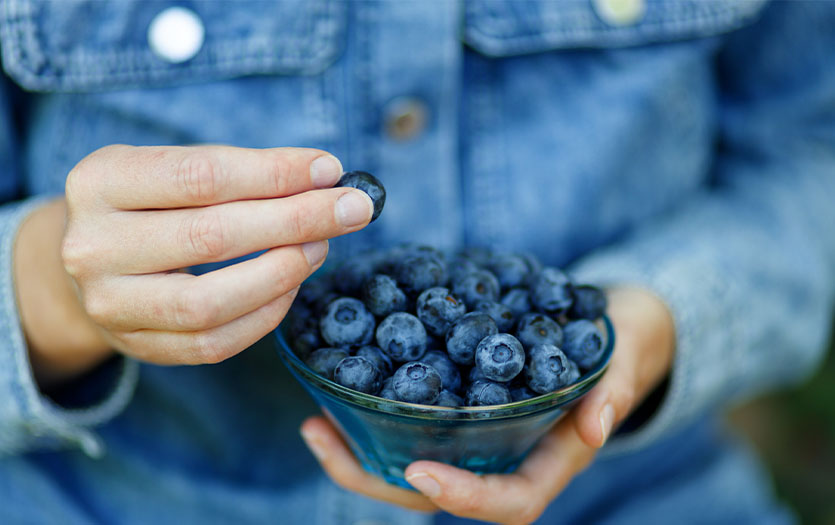
According to the Centers for Disease Control and Prevention (CDC), 71 million American adults have high cholesterol. This is reflected in the booming market of over-the-counter proposed solutions. For the pharmaceutical perspective on common supplements, Adam Killion, 2019 PharmD Candidate Purdue University and Jamie Gaul, PharmD, BCPS, Betsy Meisberger, PharmD, BCPS, and Kris Howard, PharmD, BCPS, Parkview Health, share their thoughts on the most popular cholesterol-lowering options on the market.
What is cholesterol?
Cholesterol is a waxy substance found in the bloodstream and in your cells. Cholesterol is necessary for cells to function correctly. It comes from two sources: our bodies and the food we eat, such as meat, poultry and dairy products. However, too much cholesterol can cause risk of coronary heart disease, heart attack and stroke.
|
Bad Cholesterol (aka Low-Density Lipoprotein) carries cholesterol to cells. Excess LDL can build up on artery walls. This causes them to narrow, which reduces blood flow and can form plaques that leads to a clot. |
|
Good Cholesterol (aka High-Density Lipoprotein) carries excess cholesterol in your blood back to your liver where it’s broken down to be removed from your body. HDL helps regulate the amount of excess cholesterol in your body. This makes a high level of HDL a good thing that can help maintain health. |
Don’t forget about triglycerides: Triglycerides are lipids that store unused calories for the body. These fat storage units can increase the risk of clogged arteries as well and lead to heart disease.
Risk factors for developing high cholesterol
- Risk Factors you can’t change:
Age (men ≥ 45/women ≥ 55)
Sex
Family history
Race
- Risk Factors you can change:
Physical inactivity
Alcohol
Diabetes
Obesity
Smoking
Knowing “normal” cholesterol numbers
|
|
Desirable/Low Risk* |
Medium Risk |
High Risk |
|
Total Cholesterol |
<200 |
200-240 |
>240 |
|
Low density cholesterol (LDL) |
<130 |
130-160 |
>160 |
|
High density cholesterol (HDL) |
>60 |
40-60 |
<40 |
|
Triglycerides |
<150 |
150-500 |
>500 |
*Certain disease states with increased heart risk may recommend lower total cholesterol, LDL and triglycerides
Higher levels can increase the risk of medical problems including heart attack and stokes.
How can I improve my cholesterol?
- Healthy diet – Add more fruits, vegetables and whole grain foods, and avoid red, fatty or processed meats, full-fat dairy products, baked goods with saturated and trans fats, high-sodium foods, sweetened or sugary beverages, solid fats or fried foods.
- Physical activity – Aim for an average 40 minutes of moderate- to vigorous-intensity aerobic activity 3-4 times per week. It’s important to set a reachable goal and increase duration as endurance builds.
- Supplements/medications
Can over-the-counter medications or herbal supplements help?
Possibly. Not all supplements are regulated by the Food and Drug Administration (FDA). Because they are not regulated, the OTC product could have an unknown amount of active ingredients. Claims of OTC medication benefits are not always supported by clinical studies and evidence. As with any medication, there are potential side effects and drug interactions to consider. Speak with a healthcare provider before starting any of these medications. Your doctor can help you decide on which option might be the best for you.
Psyllium soluble fiber (Metamucil®)
- Research supports use for lowering total cholesterol and LDL
- Recommended dose: 7-10 g per day
- Side effects: stomach upset, bloating, diarrhea, constipation and gas
- Drug interactions: Take 2 hours before or after other medications
Fish oil/Omega-3 fatty acids
- Research supports use for lowering triglycerides
- Recommended dose: 2-4 g per day
- Side effects: upset stomach, diarrhea, heartburn and fishy taste (enteric coated or freezing capsules can reduce bad taste)
- Drug interactions: blood thinners
Neutral options with inconsistent results:
Niacin
- Research supports use for lowering LDL and increasing HDL
- Recommended dose: 1-4 g per day
- Side effects: flushing, high blood glucose, vomiting and liver problems
- Drug interactions: alcohol, diabetes medications
Red yeast rice
- Some studies show a decrease in cholesterol and LDL due to similarity to prescription statin medications
- Recommended dose: Varies by product formulation
- Side effects: muscle pains
- Drug interactions: duplication of therapy if taking prescription statin therapy
Not recommended – Inconsistent results:
Garlic
- Research doesn’t support routine use for cholesterol management
- Recommended dose: Varies based on the source of active ingredient
- Side effects: bad breath, body odor, upset stomach and heartburn
- Drug interactions: blood thinners



